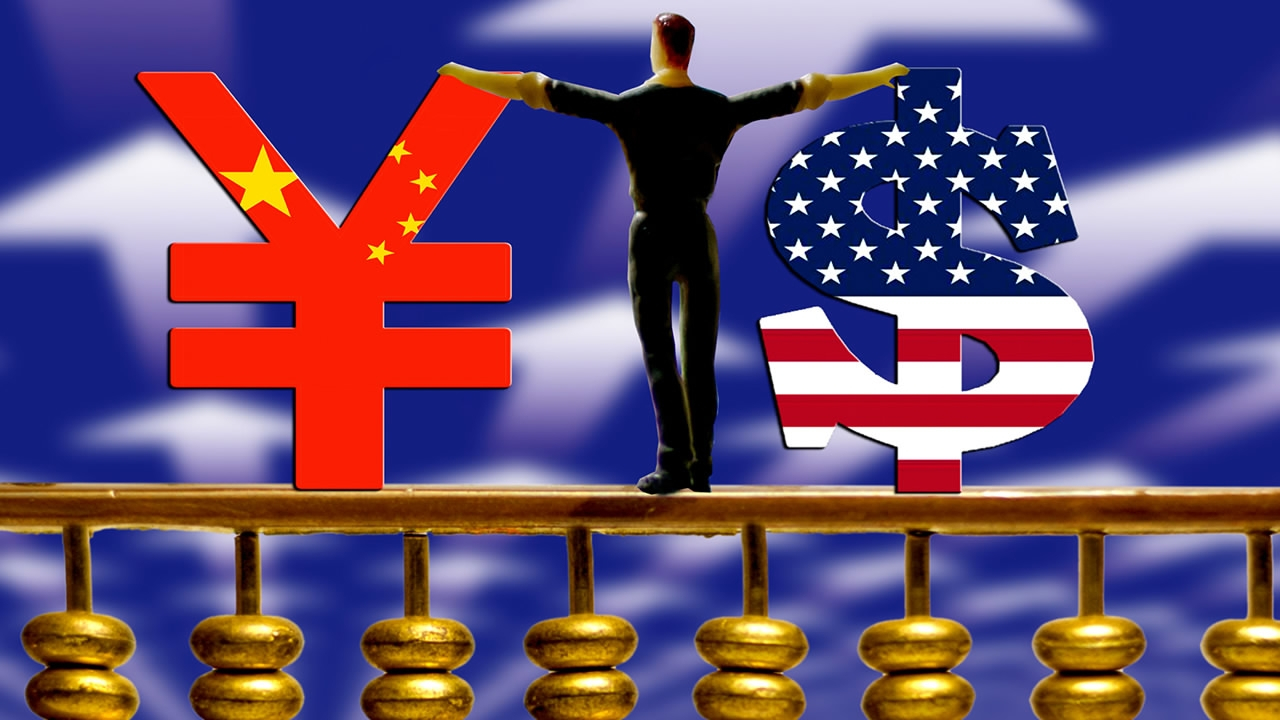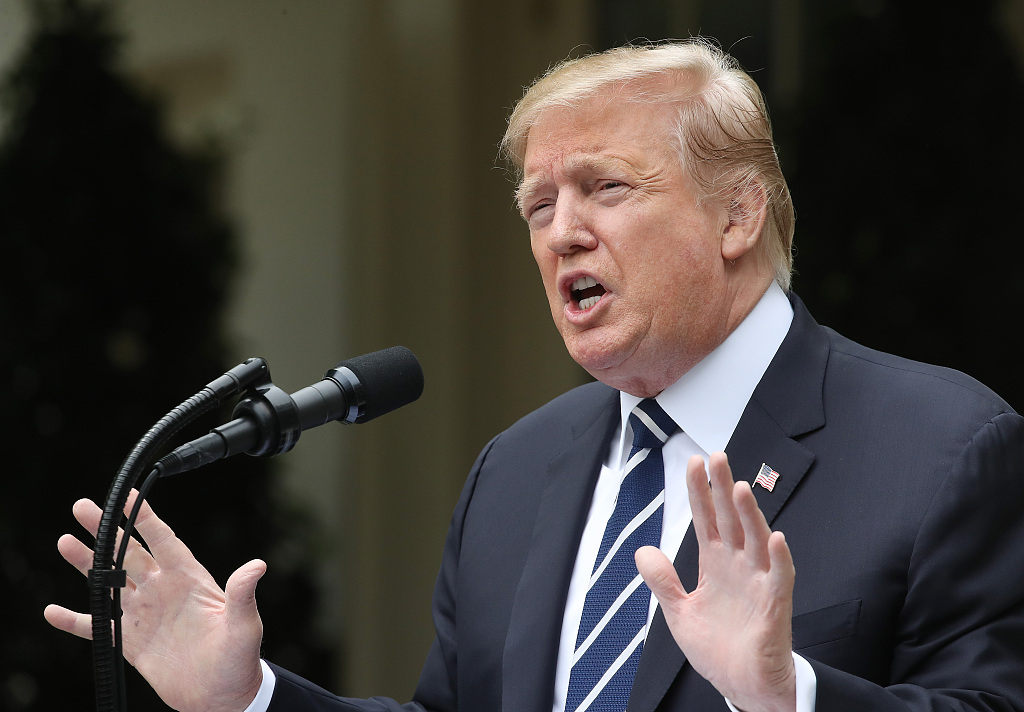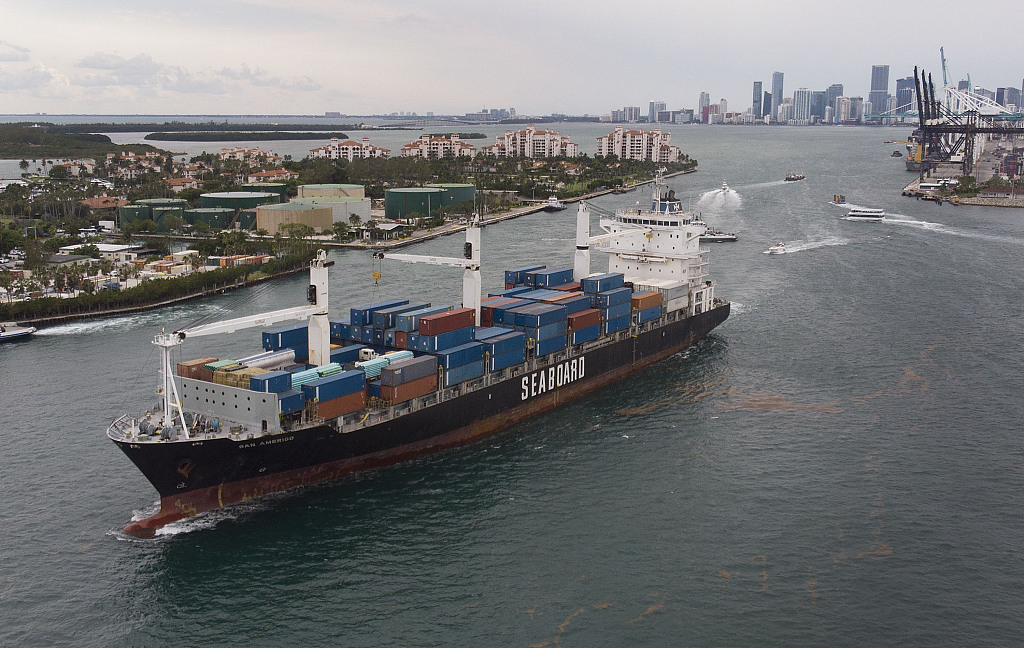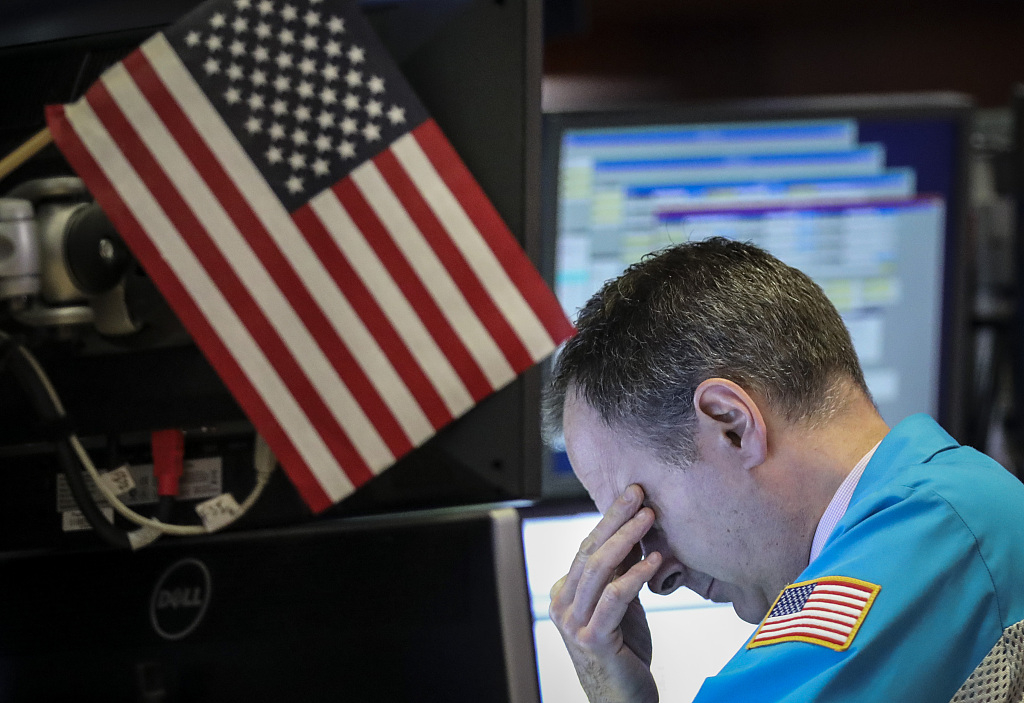
Opinion
14:17, 23-May-2019
Better to stop the trade conflict before it's too late
Updated
19:23, 23-May-2019
Zhao Minghao

Editor's Note: Zhao Minghao is a senior research fellow at the Charhar Institute and an adjunct fellow at the Chongyang Institute for Financial Studies at Renmin University of China. The article reflects the author's opinion and not necessarily the views of CGTN.
In addition to announcing a 25-percent tariff on almost all Chinese exports to the U.S., Washington has gone all out to campaign against China's Huawei and tried to cut off U.S. companies' supply of high-tech products to China.
National security plays a big, and sometimes absurd, role in the U.S. trade and technological wars with China. For example, the U.S. Senate Democratic leader Chuck Schumer has asked the U.S. Commerce Department to thoroughly assess whether the new carriages designed by Chinese train manufacturer CRRC for the New York subway pose a threat to U.S. national security.
In addition, ahead of next month's G20 Summit in Osaka, Japan, the U.S. is vigorously building an international “united front” to put pressure on China. On the one hand, the U.S. is stepping up consultations with Europe and Japan in an attempt to impose more restrictions on China's government industrial policies, including reducing China's support for private enterprises.
On the other hand, the Trump administration has lifted tariffs on steel and aluminum imports from Canada and Mexico on the condition that they take harsher measures to prevent Chinese steel from entering the U.S. through the two countries.

U.S. President Donald Trump speaks at the White House in Washington, D.C., May 22, 2019. /VCG Photo
U.S. President Donald Trump speaks at the White House in Washington, D.C., May 22, 2019. /VCG Photo
Washington is trying to focus all its firepower on the trade war against China. But, in fact, there are strong voices of doubt and opposition both inside and outside the United States.
First, America's economic outlook is not as good as Trump boasts. Although Trump claims that tariffs imposed on China since last summer have earned the U.S. billions of dollars, the U.S. exports to China fell 18.4 billion U.S. dollars in the past six months until March this year from a year earlier.
A recent survey of 120 economists showed that the U.S. economy is likely to lose momentum of growth and is expected to slow to two percent in the second quarter, with a 40-percent chance of a recession in the next two years.
According to Oxford Economics, if the U.S. imposes a 25-percent tariff on all Chinese exports to the U.S. and China retaliates, the U.S. GDP will lose about 100 billion U.S. dollars in 2020, equivalent to a reduction of 800 U.S. dollars per household. The number of new jobs will be reduced by 360,000.
Moreover, American farmers, businesses and consumers are becoming more dissatisfied with the Trump administration.
Earlier, many industry associations, such as the American Soybean Association, the National Retail Federation, and the Information Technology Industry Association, among many others, have clearly expressed their opposition to the increase of tariffs against China. The USDA's subsidies to farmers suffering losses are nothing but lip service.

The Seaboard Marine cargo ship leaves PortMiami in Miami Beach, Florida, U.S., April 26, 2019. /VCG Photo
The Seaboard Marine cargo ship leaves PortMiami in Miami Beach, Florida, U.S., April 26, 2019. /VCG Photo
On May 20, 173 U.S. companies, including Nike and Adidas, jointly signed an open letter to Trump, pointing out that it would be catastrophic for American consumers, the hundreds of thousands of workers employed by these companies and the U.S. economy as a whole if the U.S. increased tariffs on Chinese footwear.
Furthermore, the “technological war” that the Trump administration is keen on is increasingly hurting the U.S. itself.
The Trump administration's crackdown on Chinese high-tech companies such as Huawei will not only cause economic losses to U.S. companies, but also damage the U.S.' science and technology innovation ecology and long-term competitiveness. Silicon Valley has expressed great concern about what Washington is doing.
Outside the U.S., a growing number of countries and international organizations are unhappy with the Trump administration's escalating economic pressure on China.
Recently, French President Emmanuel Macron, British Chancellor of the Exchequer Philip Hammond, Deutsche Bundesbank President Jens Weidmann and others have publicly expressed the view that the escalation of the trade dispute between the U.S. and China would “plague” global economic growth, and the impact on the U.S. itself would also be very serious.
OECD Secretary-General Angel Gurria warned that Sino-U.S. trade tensions hindered the global economic recovery and would continue to endanger global investment and growth. As a result, OECD adjusted downwards its global GDP growth forecast to 3.1 percent in 2019 from 3.9 percent a year ago. The U.S. will not be a winner in the face of a worsening global economy.

Traders and financial professionals work ahead of the closing bell on the floor of the New York Stock Exchange (NYSE) in New York City, U.S., May 13, 2019. /VCG Photo
Traders and financial professionals work ahead of the closing bell on the floor of the New York Stock Exchange (NYSE) in New York City, U.S., May 13, 2019. /VCG Photo
Without doubt, the impact of the Trump administration's “extreme pressure” on China will go beyond the economic sphere. As former U.S. Assistant Secretary of State Daniel Russell said, the traditional mechanism of communication, coordination and cooperation between the two governments has been basically closed because of the exclusive and almost paranoid concern of the U.S. about trade issues.
U.S. Secretary of State Mike Pompeo has been making more efforts to speak ill of China around the world and study how to launch a “clash of civilizations” against China, rather than try to stabilize U.S.-China relations as the previous secretaries of state did.
There may be more conflicts between Washington and Beijing over issues such as the South China Sea, the Taiwan Strait and the Korean Peninsula.
The Sino-U.S. economic and trade talks are seeking to not only re-balance the economic relations between the two countries, but also stabilize the bilateral relations. The talks have a far-reaching impact on world peace and prosperity.
As Philip I. Levy, a senior researcher at the Chicago Council on Global Affairs, said, Trump's threat to increase tariffs on China is a big gamble. He has repeatedly used similar tactics against China without any success. If Trump fails again, he himself and the U.S. as a whole will pay a high price.
(If you want to contribute and have specific expertise, please contact us at opinions@cgtn.com.)

SITEMAP
Copyright © 2018 CGTN. Beijing ICP prepared NO.16065310-3
Copyright © 2018 CGTN. Beijing ICP prepared NO.16065310-3